Car makers are rather predictable. When the Mustang stampeded onto the scene in 1964, it didn’t take more than a few years before we saw plenty of “pony car” facsimile competitors. In the same way, after first appearing in 1994 the Subaru Outback crossovers were joined by a half dozen similar products in short order. If something is successful in the automotive world, you can be damn sure that it will be copied as quickly as the other brands can get a rival to showrooms. Why shouldn’t they? In fact, I’m usually shocked when I see the rare cases where other car makers don’t copy a winning formula, or they take a flat-out eternity to do so.
One of those products that took forever and a day to get real Big Three rivals is the full-sized pickup-based station wagon with more than two rows of seats (and, later, four doors) that General Motors arguably pioneered as the Suburban. Why did the other Detroit giants drop the ball in making their own profitable heavy-duty family haulers? More importantly, where the hell is our RAM Tahoe and Suburban?
A Century Of The ‘Burbs
If you ask seasoned car geeks how long General Motors has been making Suburbans, many might say five or six decades. They’d be wrong; it’s hard to believe, but this massive, tall wagon will soon be celebrating its 100th birthday, with the first example having been released in 1935.
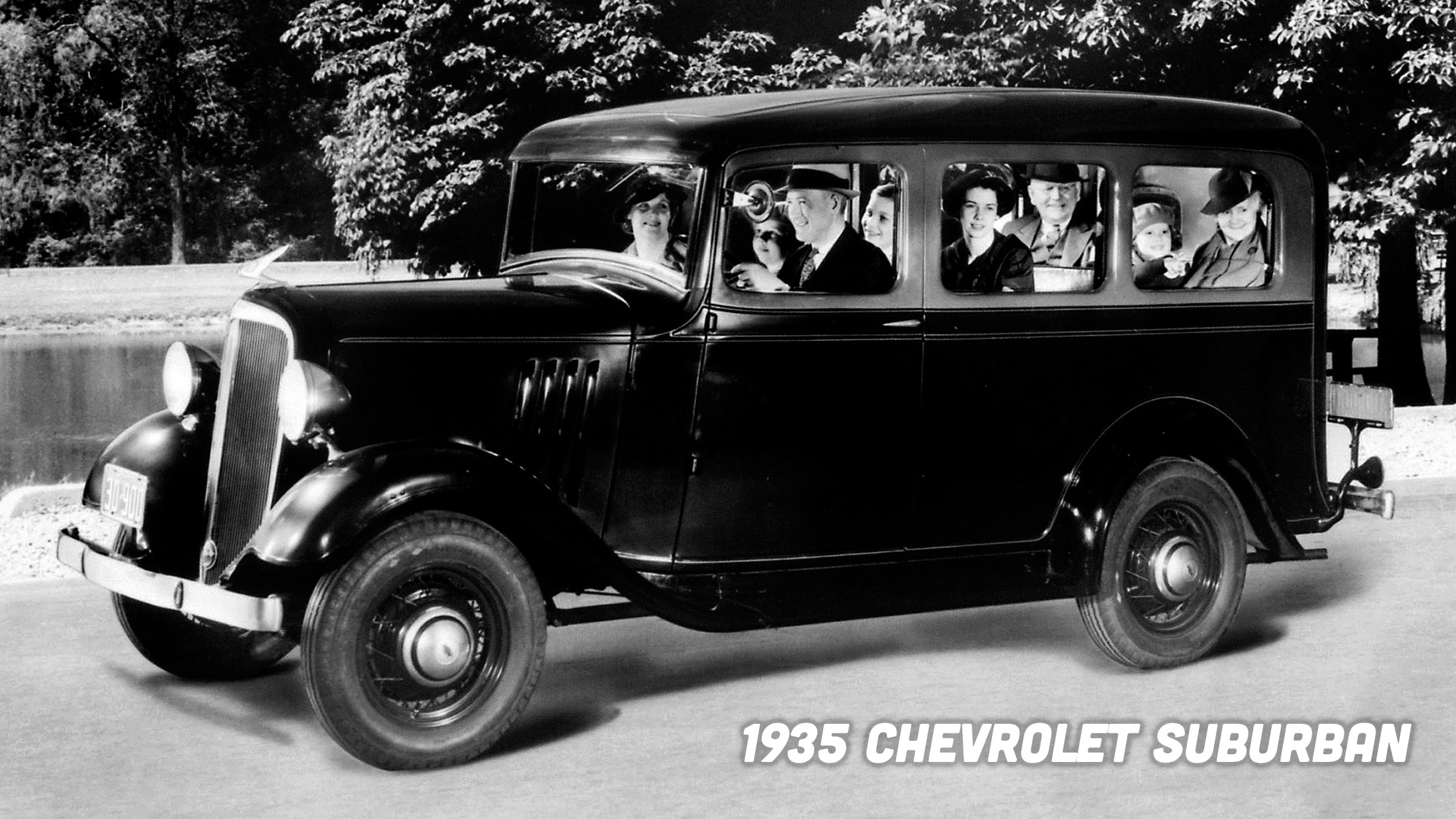
Note that early ones only had two doors up front to access the three rows of seats, which sounds like something requiring major gymnastics to get to the “way back.”
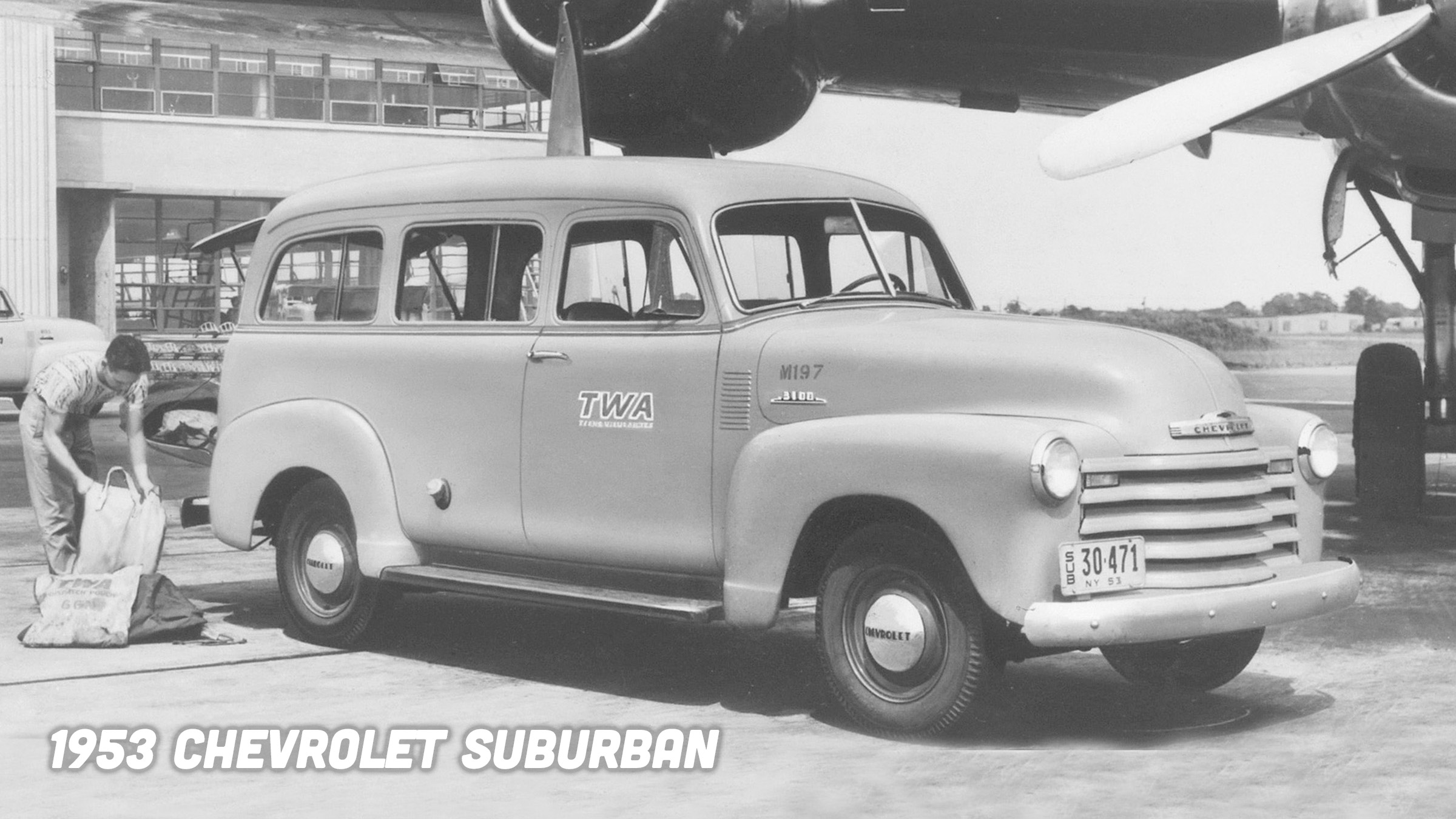
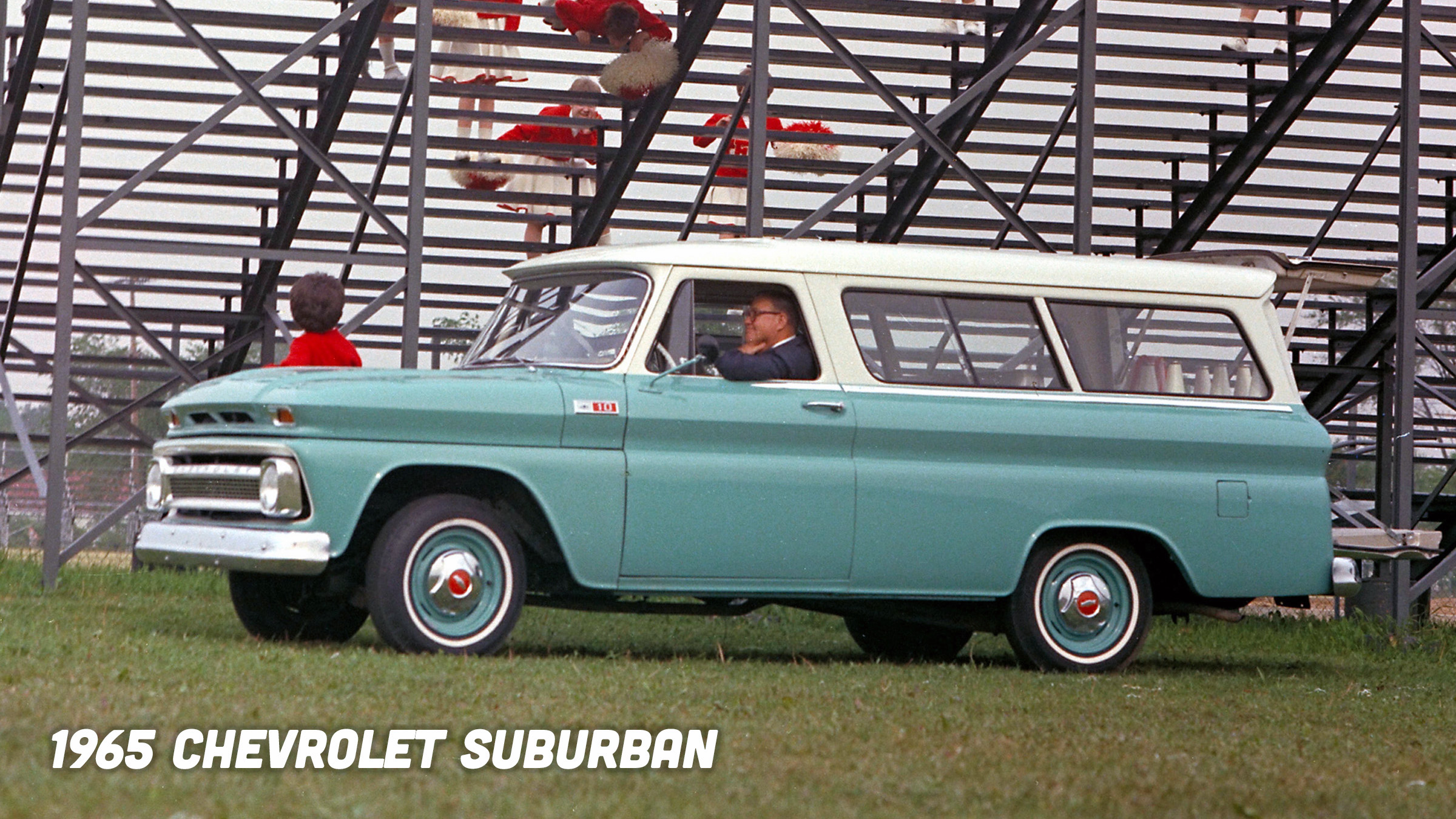
In 1967, a rear side door was finally offered, but only on the passenger’s side.
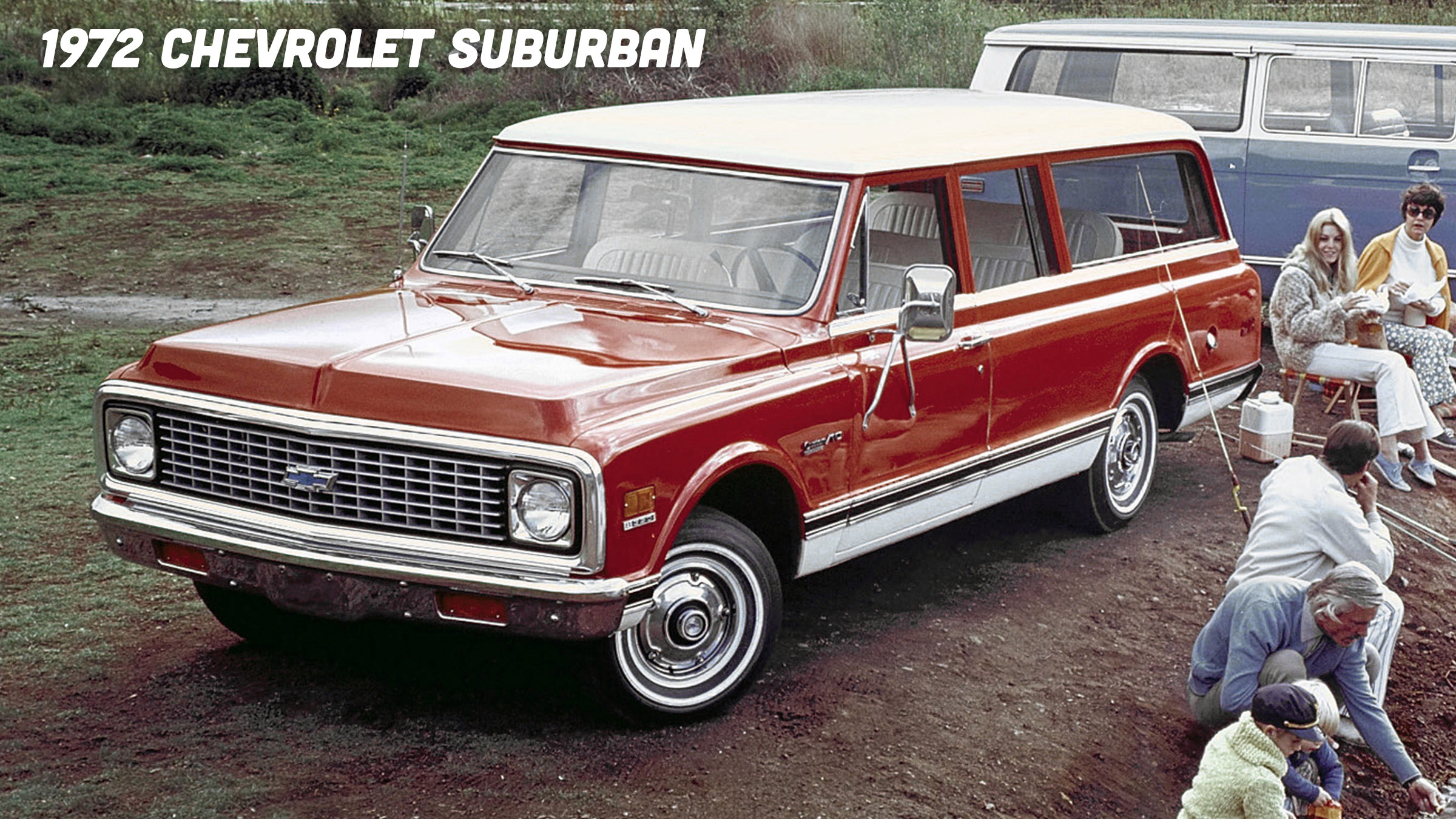
Over the years, the Suburban (either Chevy or GMC branded) changed as new full-sized GM trucks were introduced. Starting with the 1973 models, all Suburbans finally became four-doors.
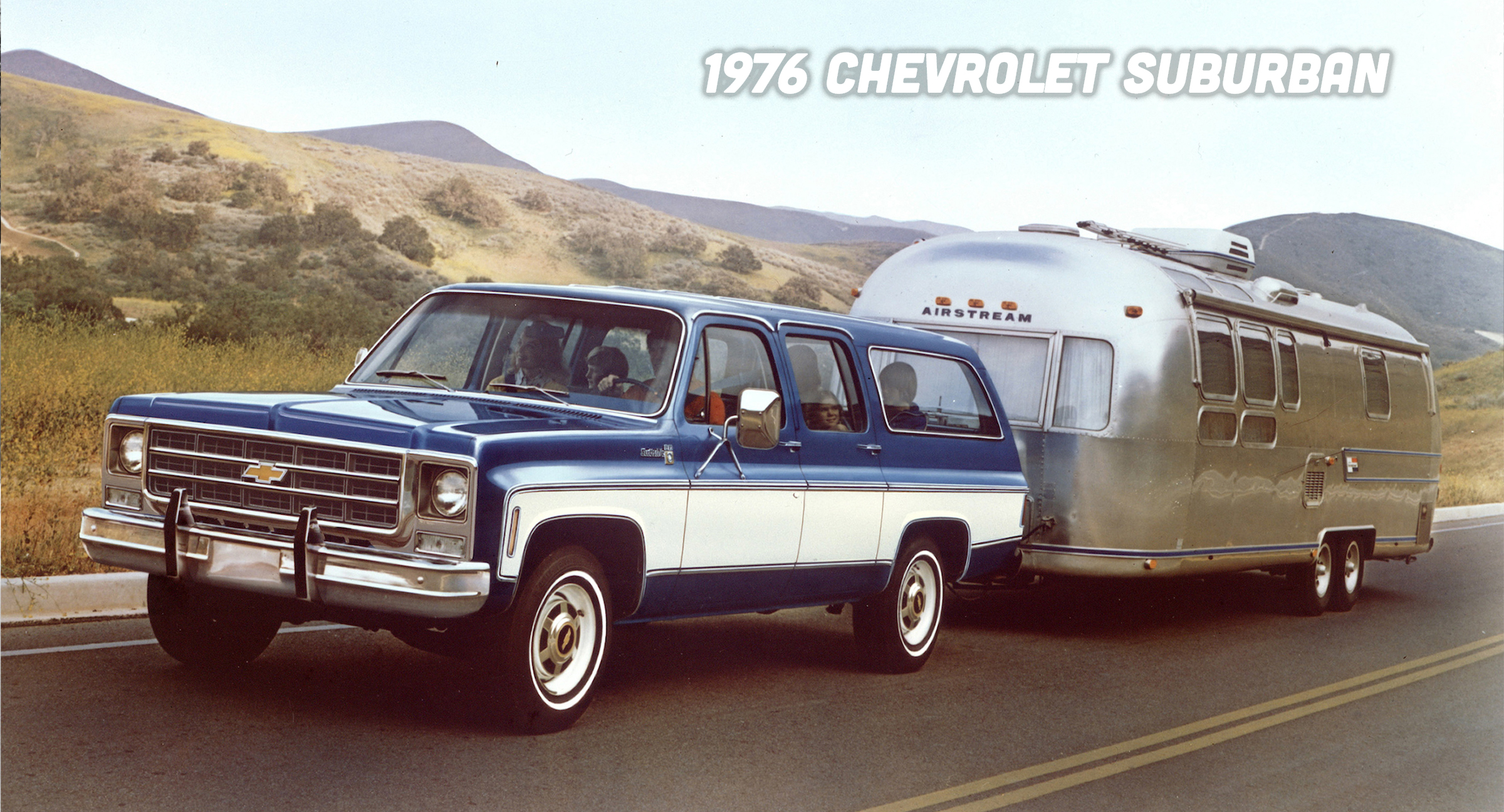
With each new generation, the ‘Burban became more capable but also a bit more car-like to make it a viable option for more people, even if they didn’t want to get 4WD for off-roading or power to tow monstrous 6000-pound campers.
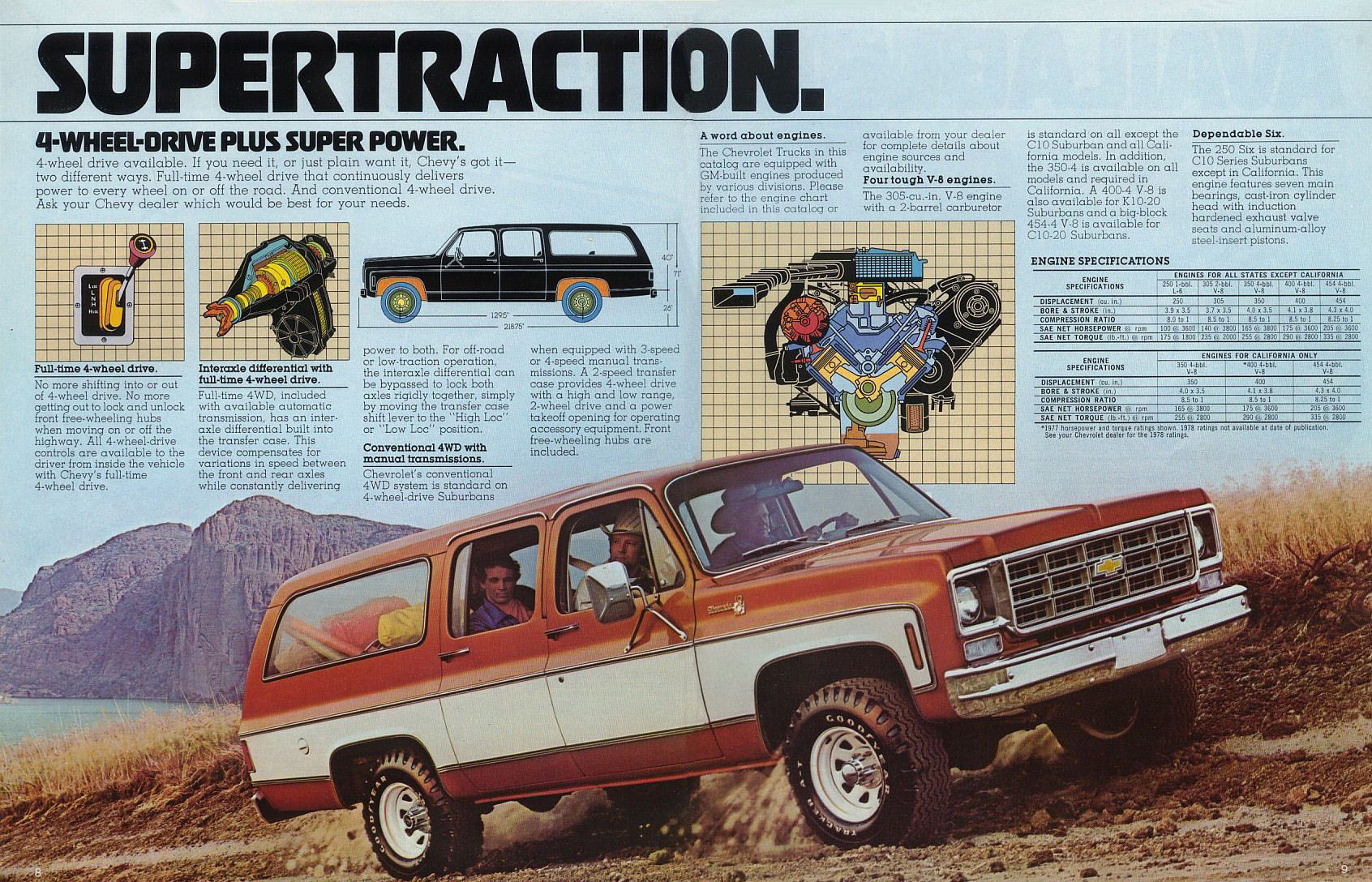
Naturally, the clean GMT400 version is a big Autopian favorite here.
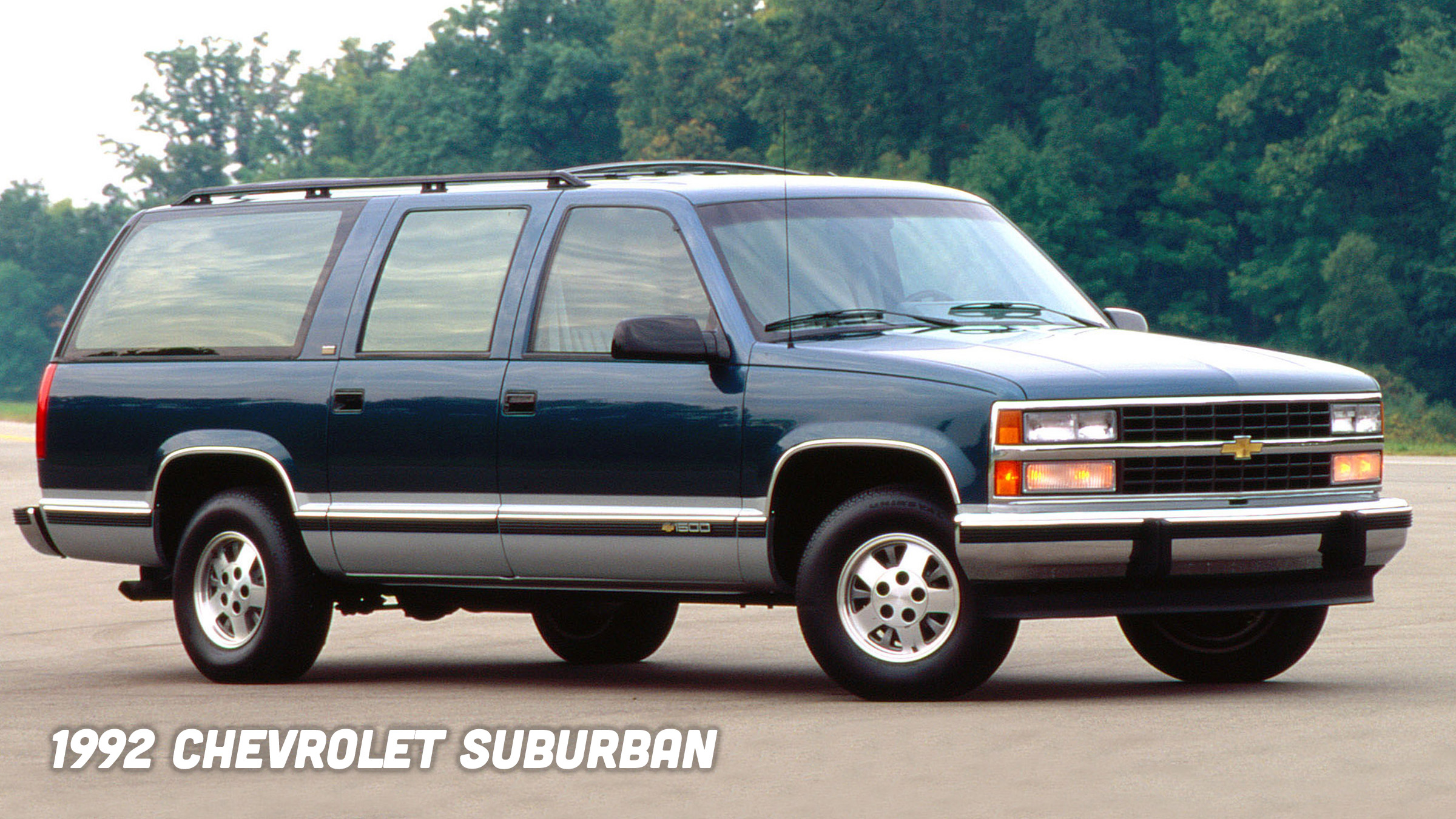
The Suburban (and later the smaller wheelbase Chevy Tahoe-sized versions) proved popular enough to survive numerous financial and energy crises despite their massive thirst and size. Niche-player International Harvester created something similar with the Travelall, and Jeep offered the four-door Wagoneer starting in 1962, but this two-row wagon was a bit smaller than the Suburban and obviously stayed stuck in a time warp where it didn’t really change until its 1991 demise.
What about the other Big Guys, Ford and Chrysler? For much of that time, they offered absolutely nothing similar. Well, almost nothing. Let me explain.
Looks Like A Distorted Bronco From Street View
It’s not that Ford never considered a Suburban fighter decades ago. Photographic evidence shows that they mocked up a fifth-generation (1967-72) F-Series into something dubbed internally as the “Midhorn”. It’s more Tahoe-like than Suburban, but it looks like it might have been a winner and real competitor for GM’s family truck-based wagon entries.
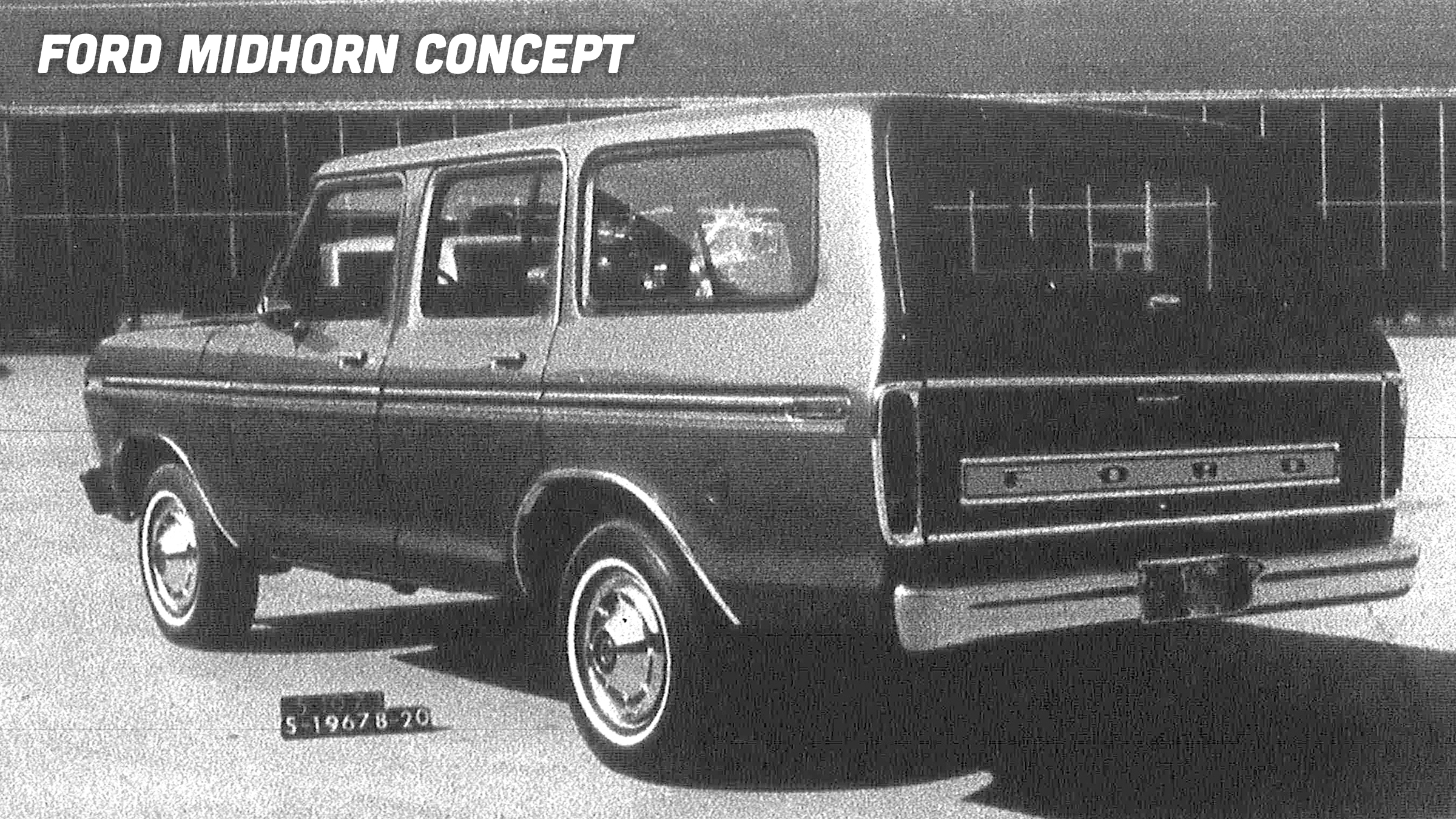
Why did it never see the light of day? I think the reason is the same thing that killed Ford’s Carousel minivan proposal: Henry Ford II. “Hank the Deuce” apparently didn’t want anything with a Blue Oval on it cannibalizing sales of his station wagons like the big LTD (“LTD” meaning “Limited”, as in limited to how many he could sell). That was likely a good short-term decision, but a tragic long-term one.
Ford corporate might have turned a blind eye, but the aftermarket certainly took notice of this gap. A number of outside coachbuilders like Centurion (famous for those weird van tow vehicles) took eighth- and ninth-generation Ford trucks and converted them into essentially heavy-duty four-door Broncos.
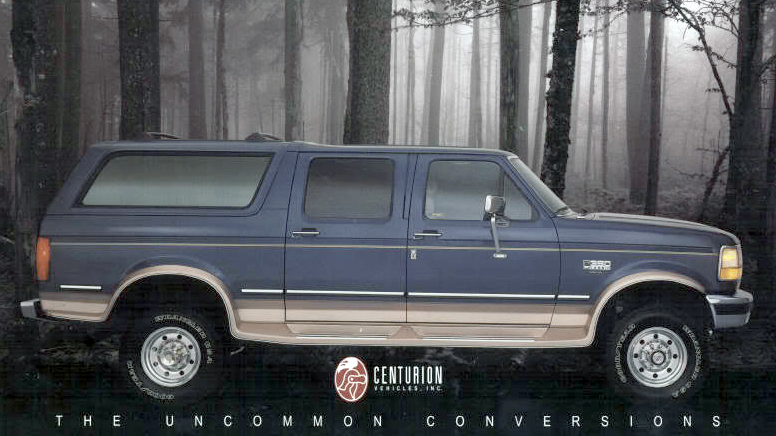
Centurion even went so far as to offer them in both F-150 chassis and heavy-duty F-350 versions:
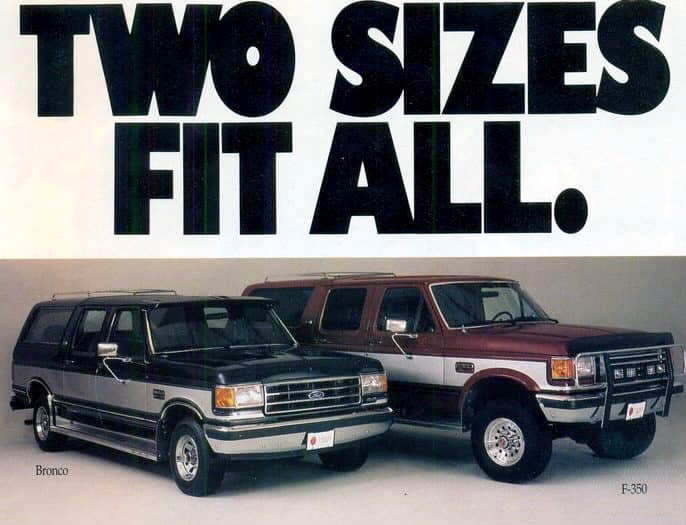
That full-ton F-350-based model with the 7.3-liter diesel was a little longer than the Suburban, so it could out-tow and out-carry the GM products. You probably already know this, but coachbuilders don’t give their services away; at over $40,000 in 1988 dollars, the cost of these converted Fords was not cheap. You’d likely only pick one over a Suburban if you needed the towing capability, liked the engines better, or wouldn’t be caught dead with a bow tie logo on your grille. Only around 4000 were made between 1988 and 1996. Oh, a boomerang TV antenna!
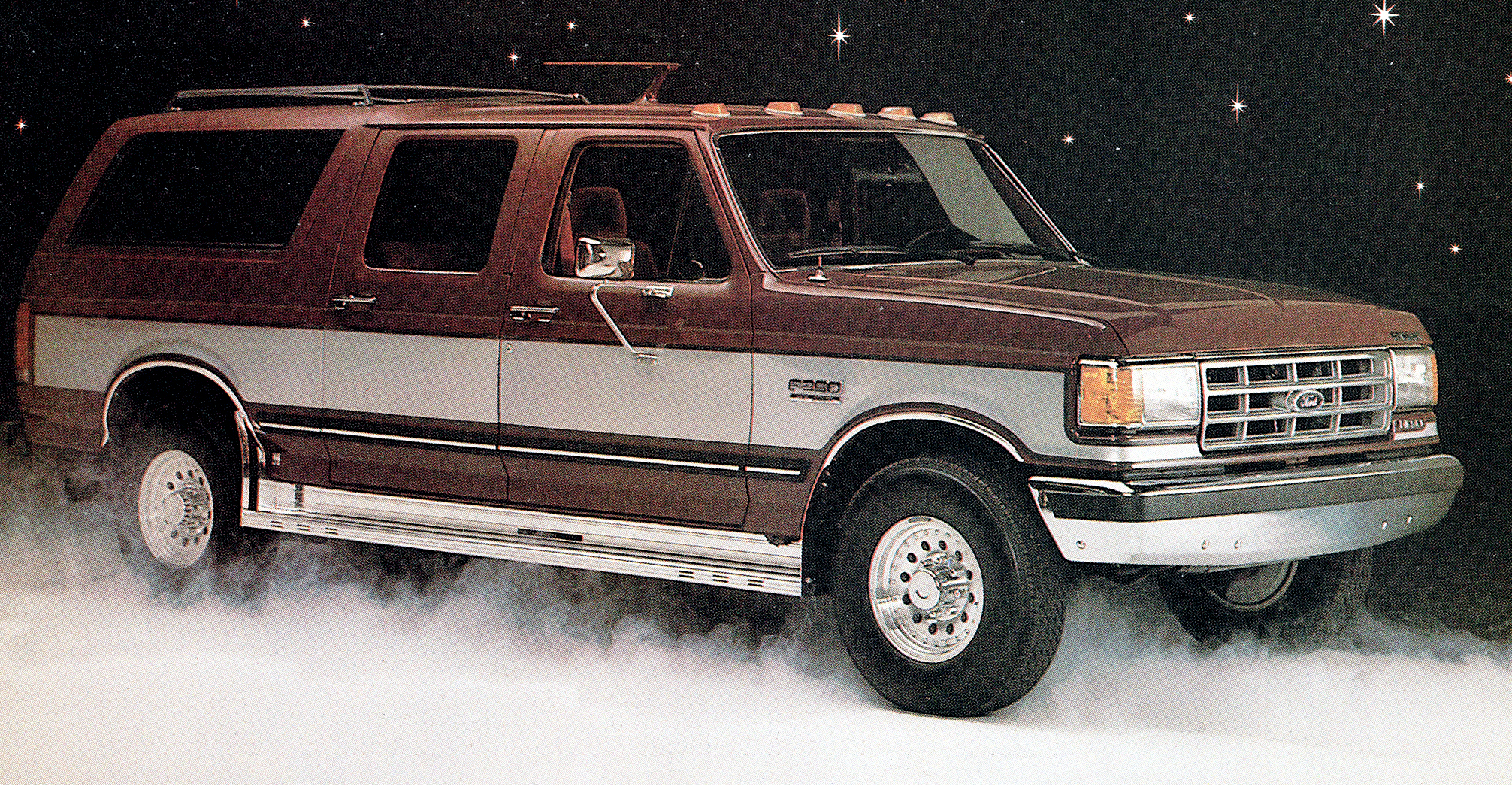
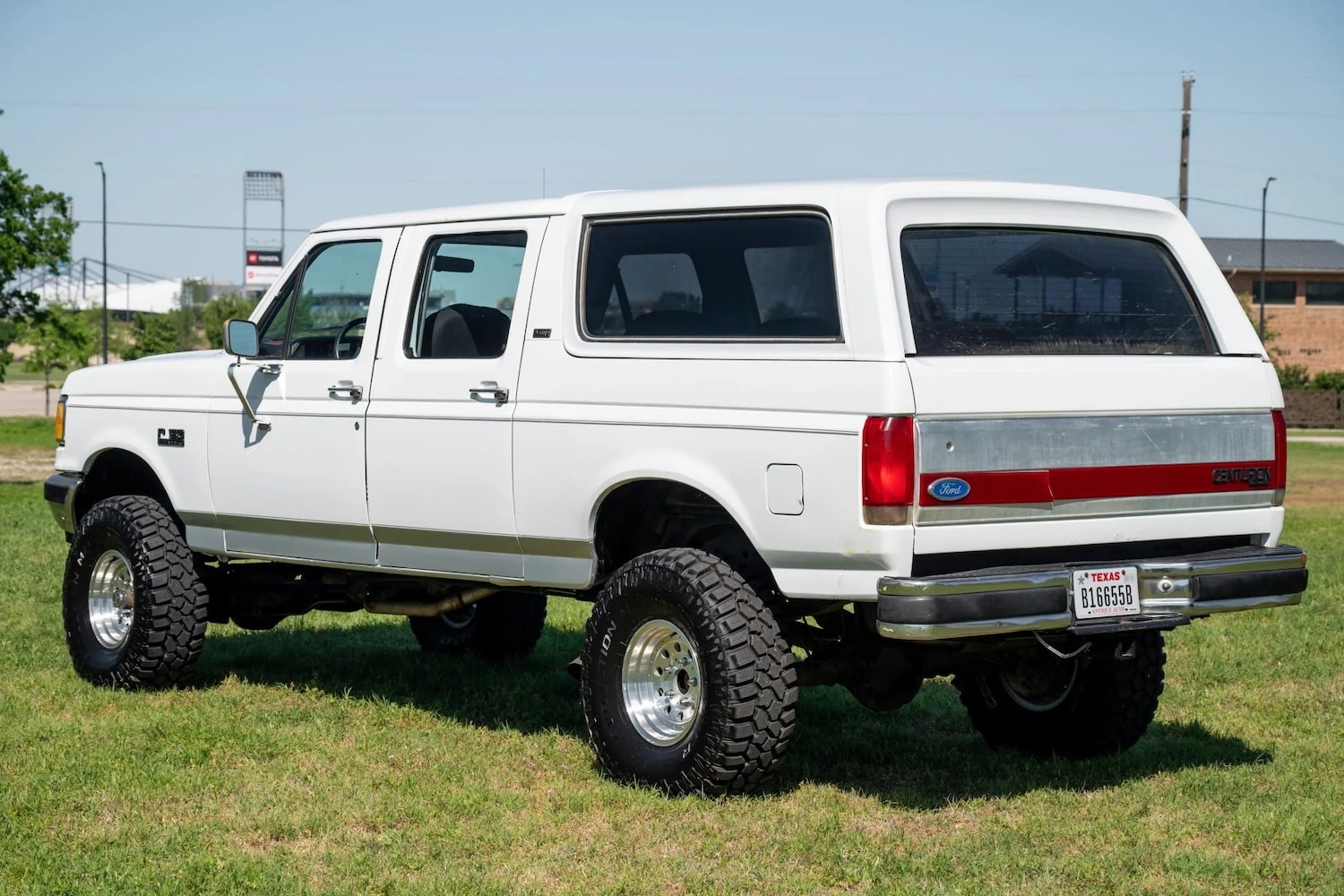
Obviously, Ford finally wised up in the late 1990s to give us the Expedition and Excursion to fight the GM juggernauts over sixty years after the first Suburban appeared. Still, why was Chrysler ignoring this market?
Silence Of The RAMs: Mopar Offers No-car
To be fair, Dodge did offer a pickup-based utility, albeit a more sporting proposition than mom-and-the-kids family hauler. Starting with the new-for-’72 D-Series as a basis, Dodge launched a roofless two-door called the Ramcharger in 1974 – basically a Mopar interpretation of the concurrent Blazer and GMC Jimmy.
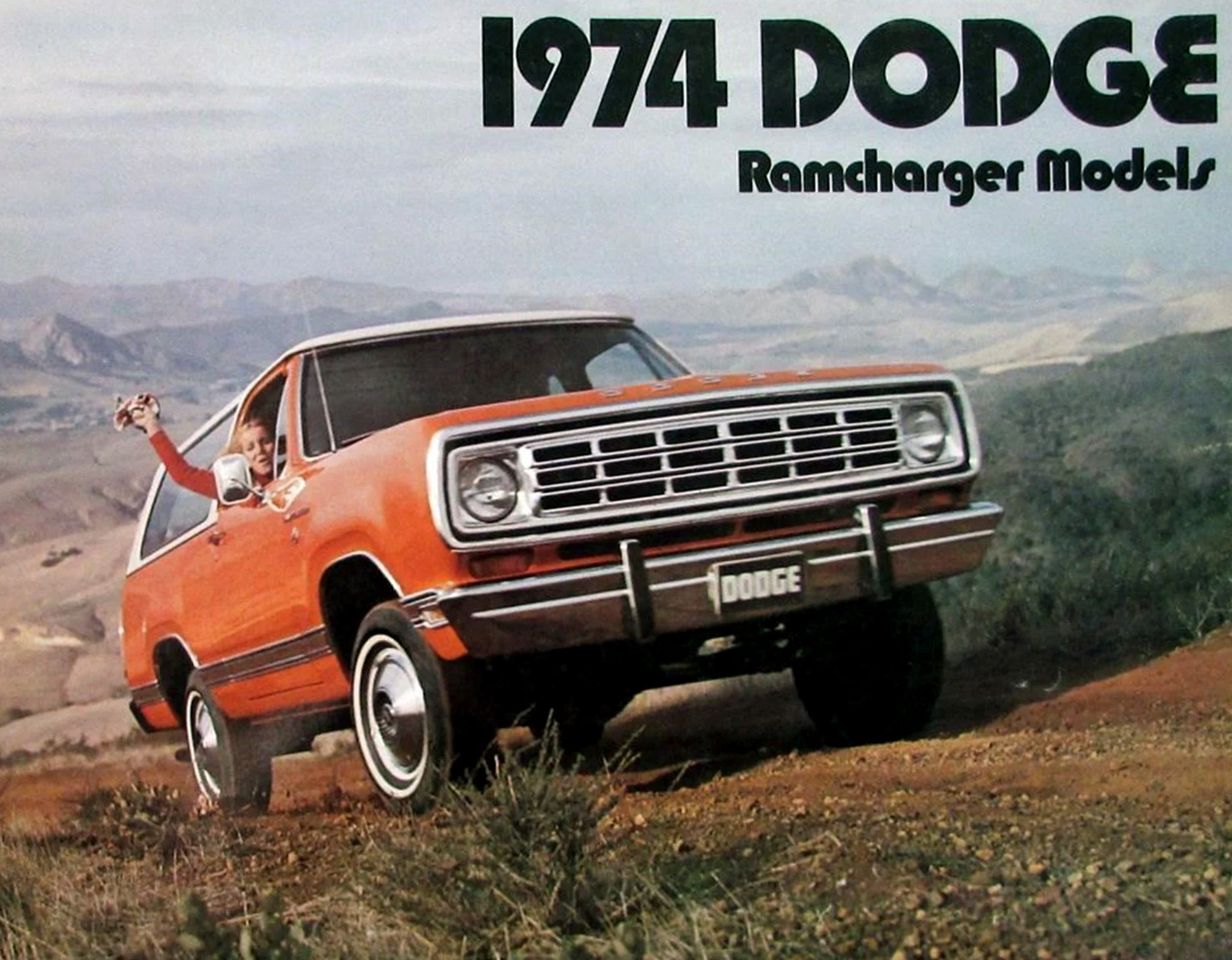
Like those GM utes, they were essentially chopped-wheelbase pickups with open beds from the windshield back and offered with removable hardtops or a canvas roof. The earliest models, like the one shown below, even had frameless door glass (but quickly were changed to add the pickup’s solid framed doors by June of ’74). And that console ice chest is pretty damn cool!
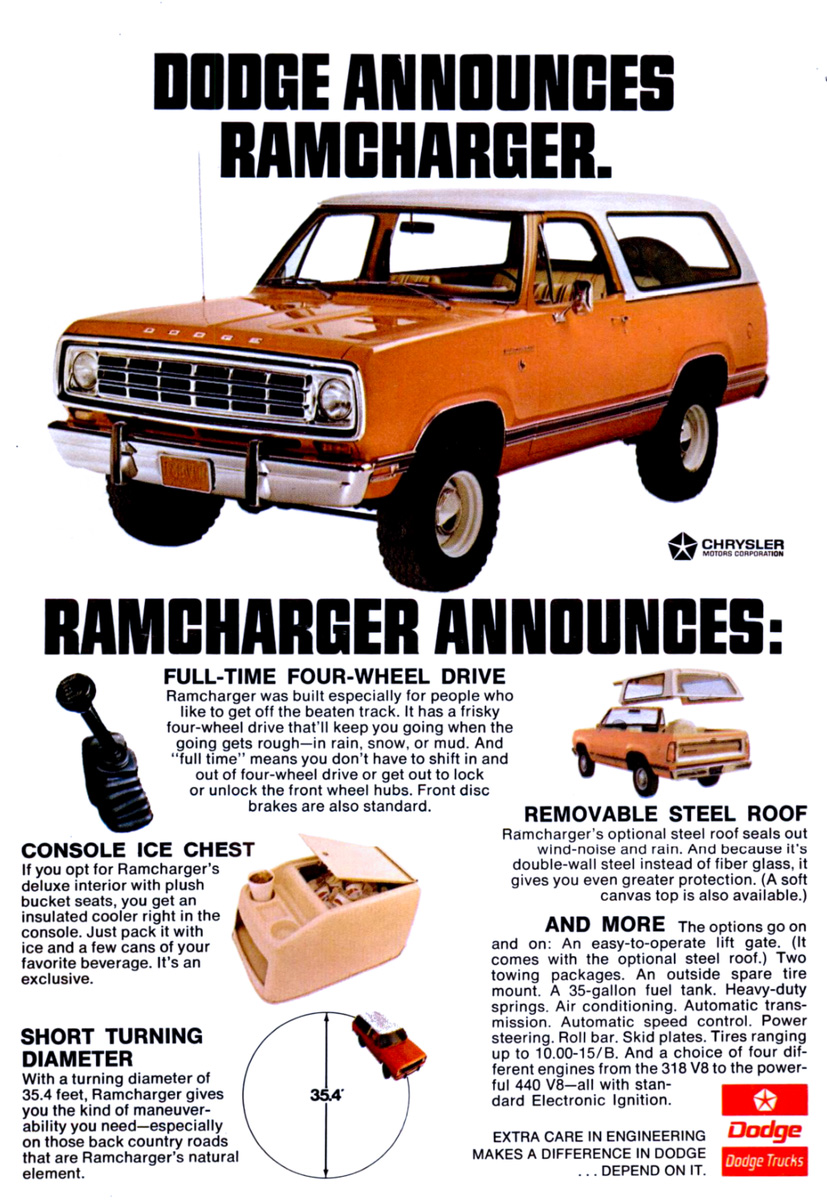
In 1981, a refreshed model debuted that included the “RAM” brand name and the revisions given to Mopar’s now-aging line of trucks. The metal roof was now fully fixed in place. The best addition on these facelifted models had to be those cool rear quarter windows that wrapped into the edges of the roof.
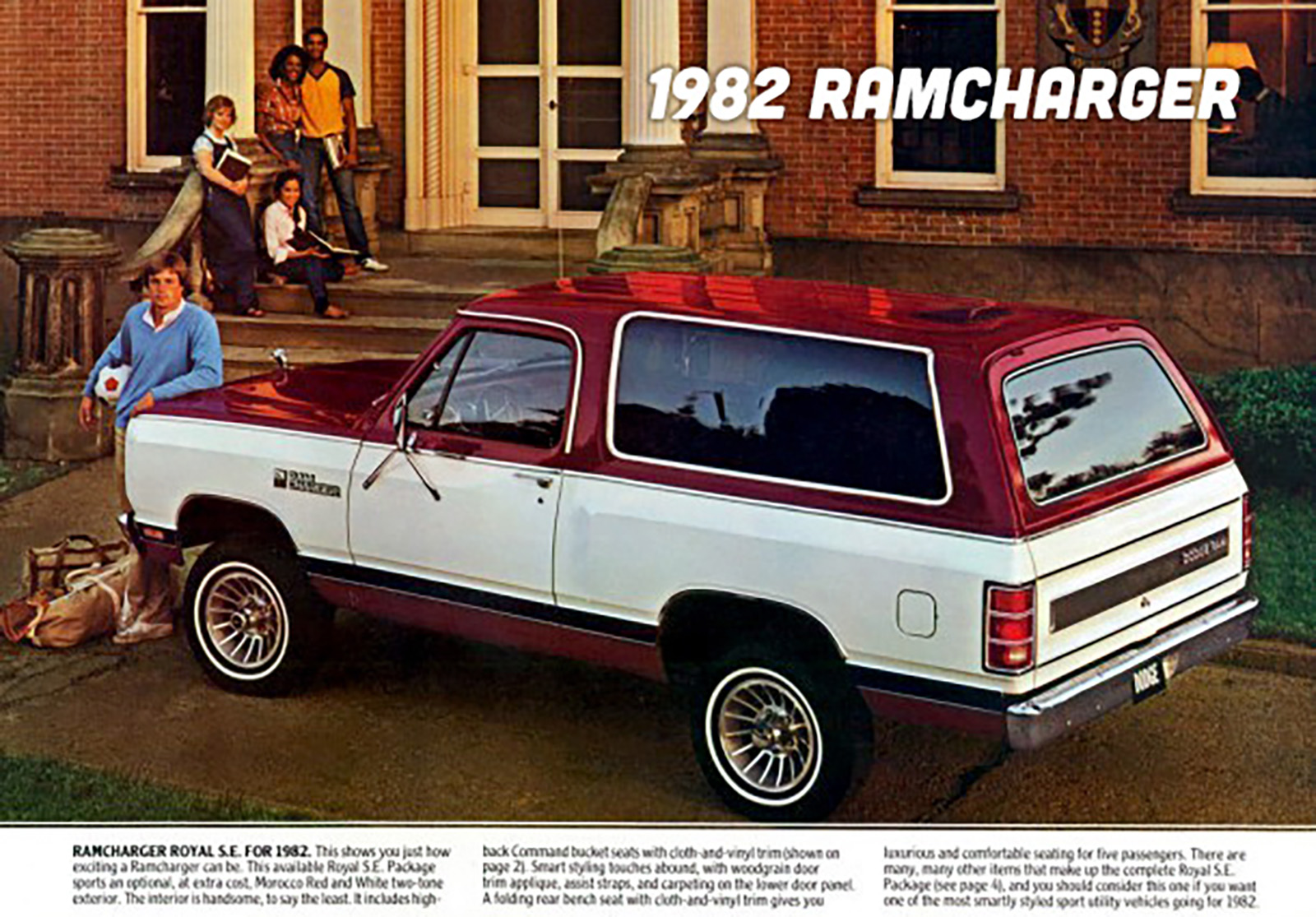
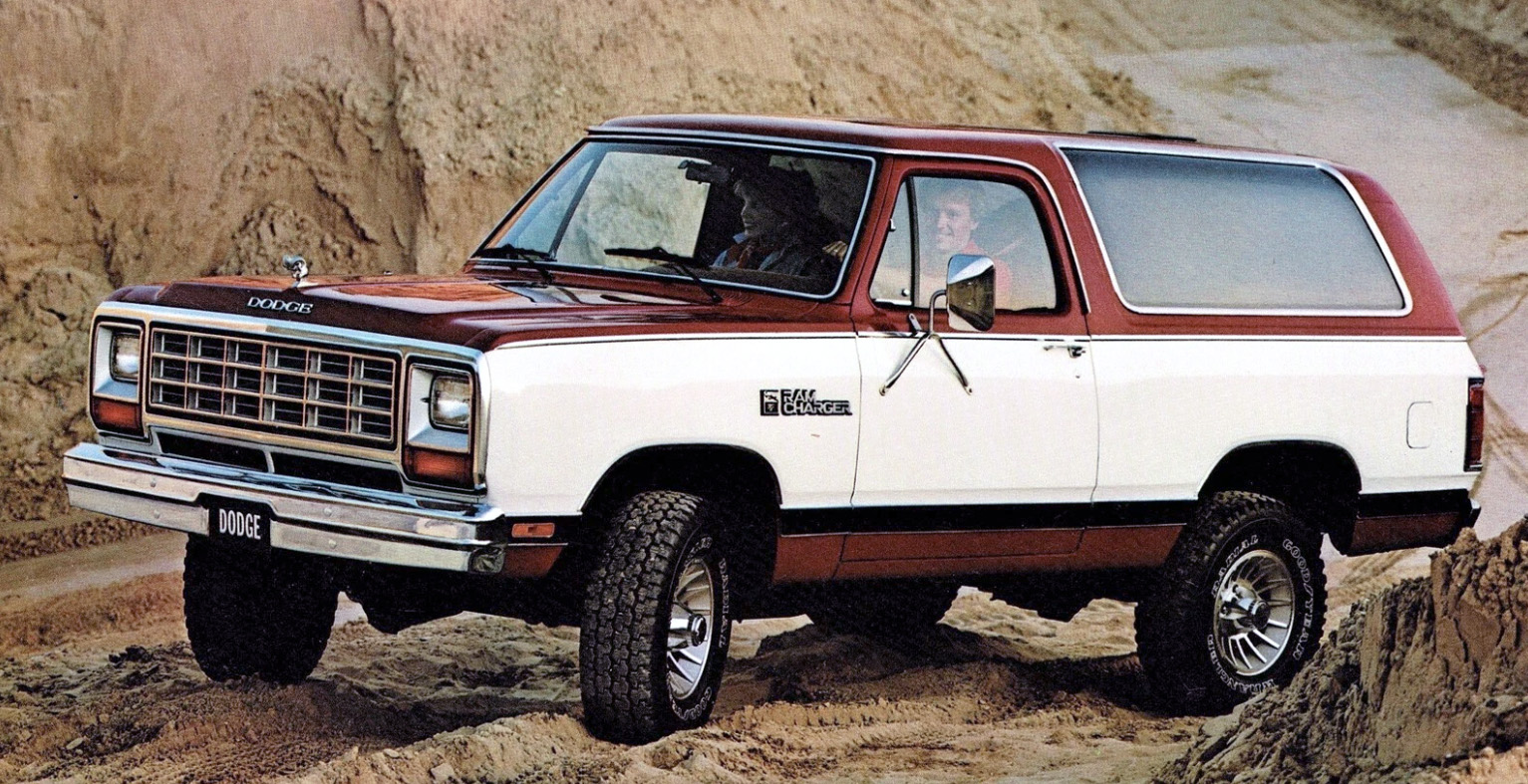
This old warhorse soldiered on until 1993 in the United States, and proved so popular in Mexico that Chrysler continued to sell it there for three more years. When it became clear to Chrysler Mexico that the U.S. was not going to release a replacement, they took matters into their own hands in 1999 and created a version based on the exciting new-for-1994 “big rig” style Ram.
You’ll note the creative use of a Dodge Caravan tailgate structure and rear backlight. It might be a little convoluted in places, but it’s rather brilliant for the reported AMC-like $3 million pittance required to tool it. Mercedes Streeter has written about this one in detail; it only lasted for two years in Mexico, and when it disappeared, that was the end for full-size factory Mopar utes.
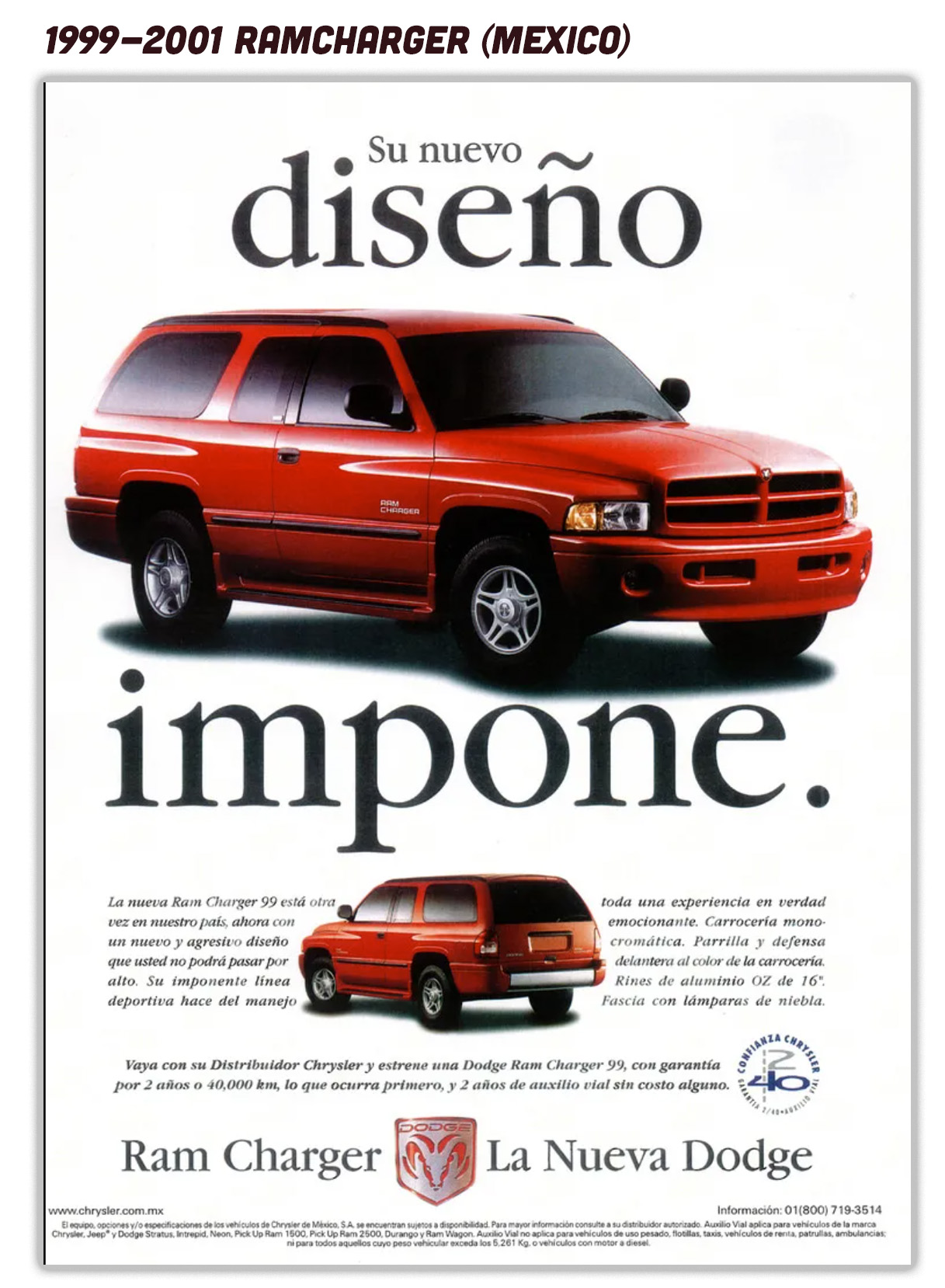
As with the Centurion Fords, the aftermarket saw a need and stepped in to turn some examples of the newer-style RAMs into Suburban-esque wagons. In many cases, coachbuilders used GM or Ford parts and stuck them onto an existing RAM pickup. This creation of a 1999 truck below was for sale a while back; as expensive as the Ford Centurions were, I can imagine this thing must have cost even more to build. At least they invested the work into a 2500 with a Cummins to have something special.
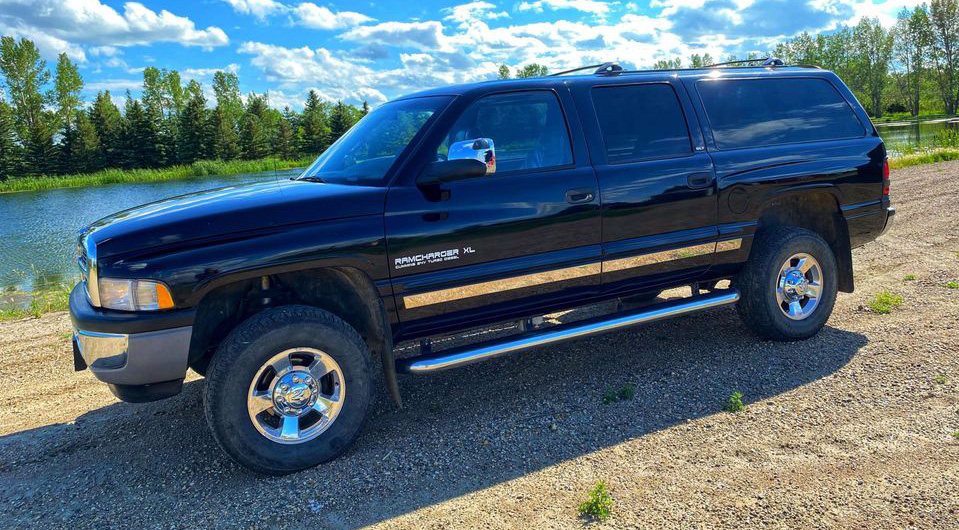
The proof-of-concept above shows the potential for the idea. Time to get an image of the latest 1500 and get started and a brand-new factory version.
Engage Photoshop … Kick Out The RAMs!
Not surprisingly, there are many, many renderings online showing concepts of RAM pickups converted to Suburban- or Tahoe-like utes. I won’t post them here since a.) legally I can’t show other people’s work without permission and b.) I don’t like any of the ones I’ve seen anyway. Most illustrators just add side window treatments scraped from or identical to an Expedition or a GM truck; how can you have a Ramcharger without those cool-looking wrapover rear quarter windows? Why would you want a big ute that looks just like the other guys anyway?
Also, I KNOW there is already a new “Ramcharger” electric truck, but honestly this classis SUV deserves rights to the name. If not, maybe we have to call it the Trail Duster to reference the rare Plymouth version of the 1974-81 Ramcharger.
I’ll start with a Tahoe-style shorter model based on a 1500:
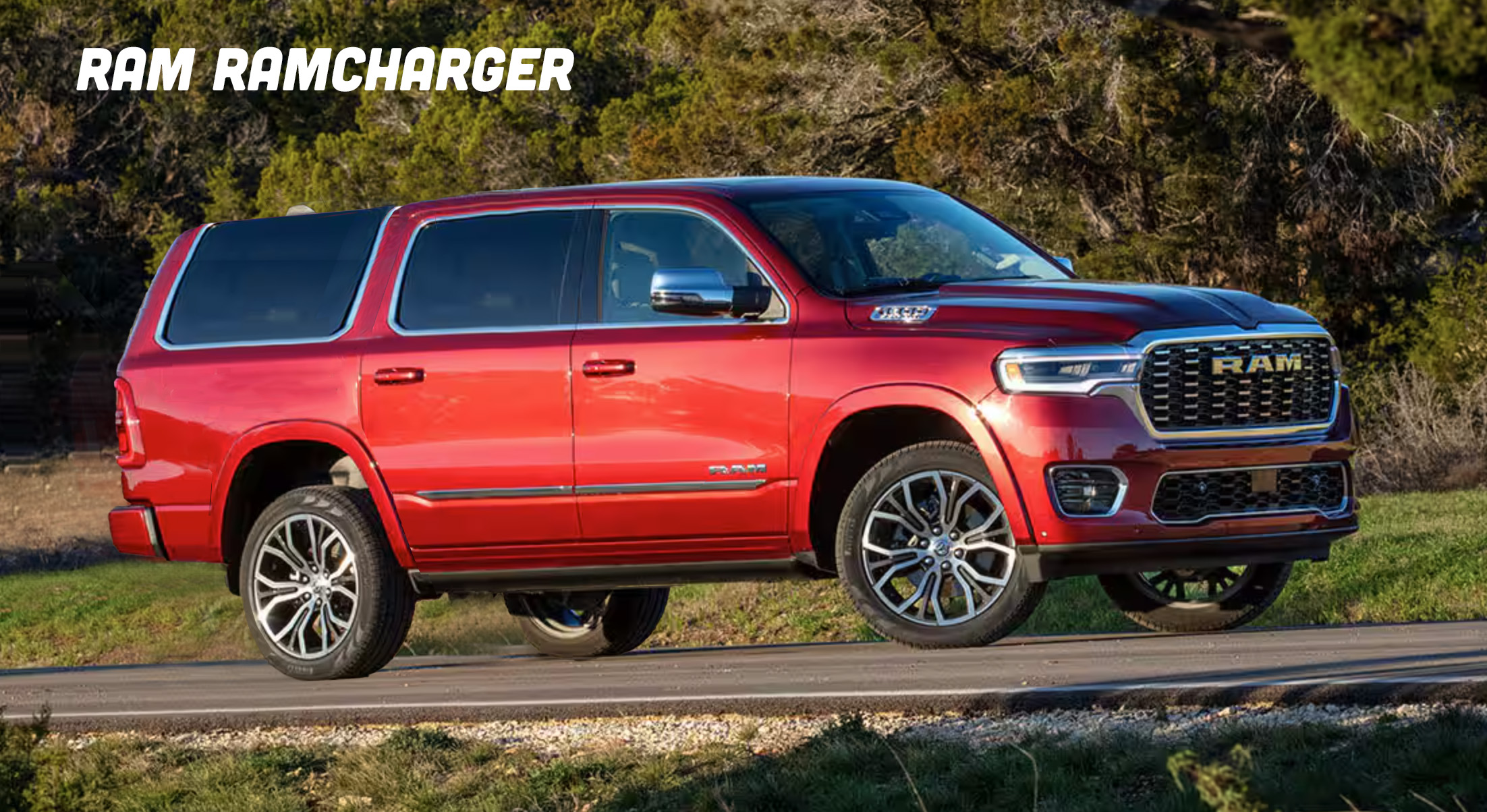
Let’s stretch it to a Suburban-sized version as well:
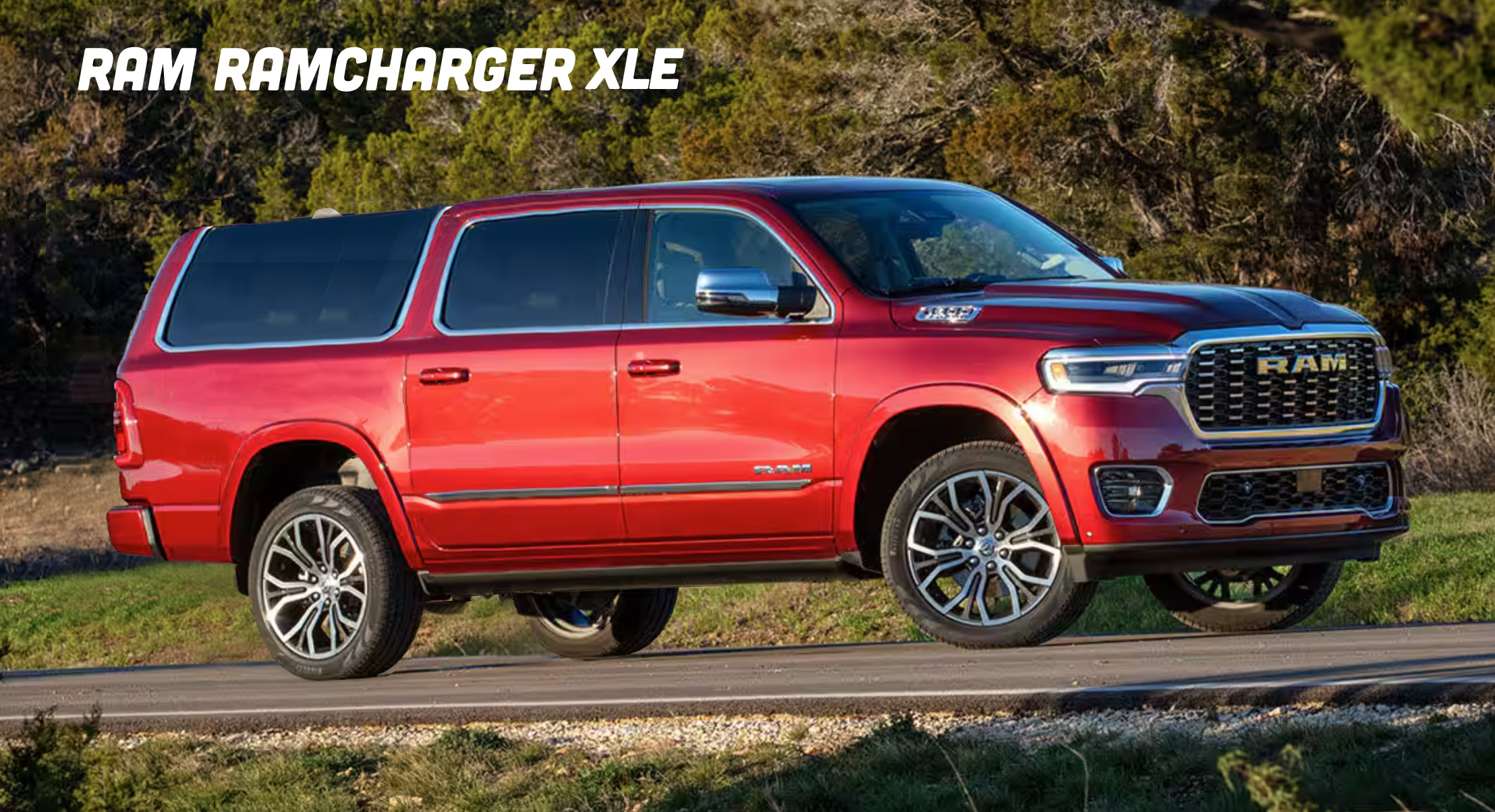
In back, I think the double doors are a bit of a lash-up, and a full lift-up tailgate isn’t befitting a “real” Ramcharger. I’ll add a lift-up hatch and fold-down tailgate, but with the split put down lower as on an Expedition to allow for easier cargo access. I tried doing funky things with Durango-style taillights and black panels as on the latest big Ford models, and it just didn’t look right. I kept it simple since to me that kind of no-nonsense approach says “RAM”.
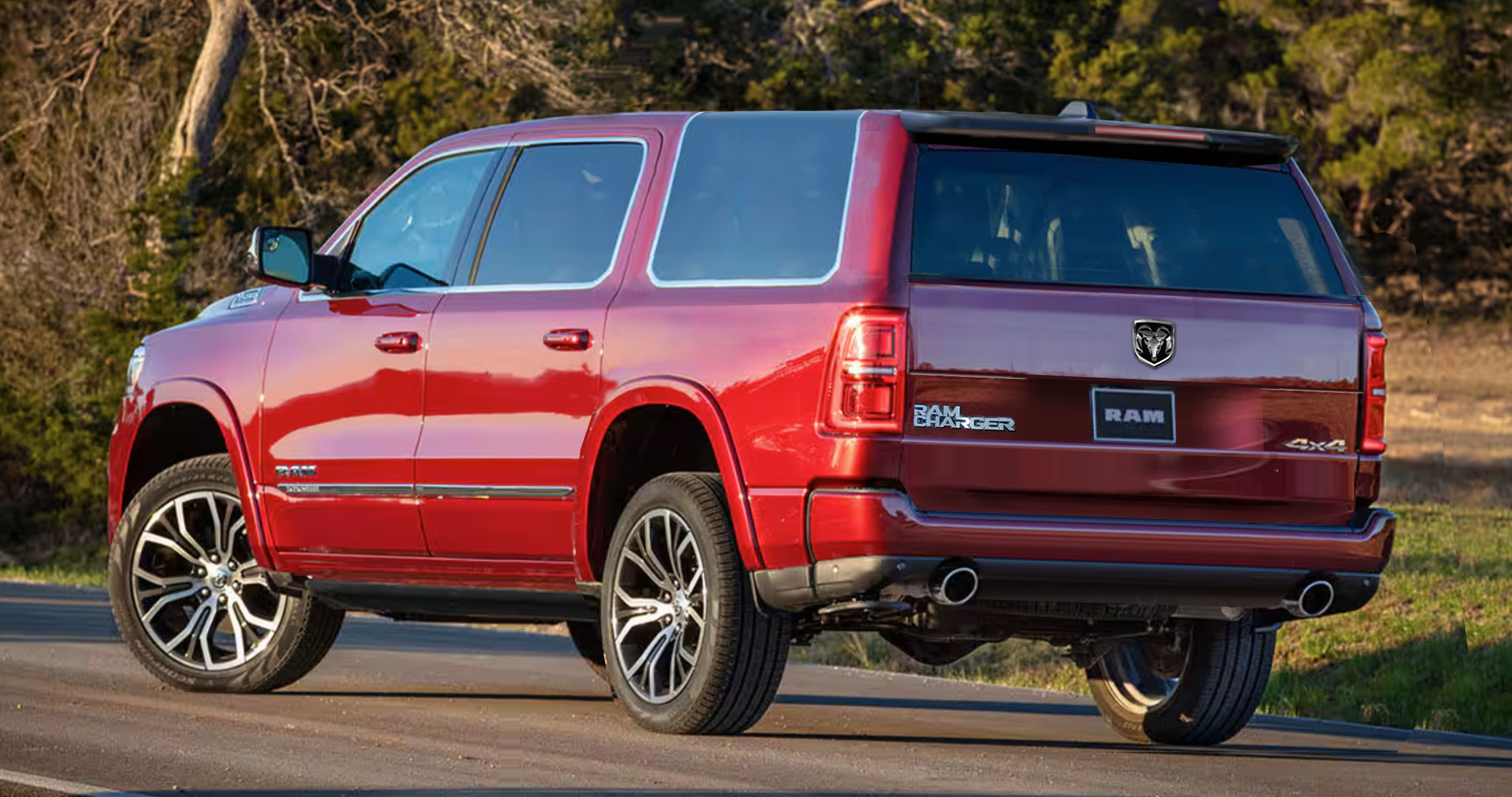
The end result is something that you barely look at twice because you assume that it already exists. Why shouldn’t it? It looks great; the distinctiveness of the nose is matched by the uniqueness of the rear greenhouse. And could a 2500 version be offered? Did someone say Cummins? Why not? It’s a can’t miss.
Let’s RAM A Hit Out Of The Park
The best part of this new Ramcharger? Profitability of large sport utilities- especially the luxury versions- is typically off the scale. I remember reading something years back about how one Navigator sale packed more profit than selling three or four Focuses (or is that Foci?).
Come on, Stellantis, in the last few years, you’ve given us the Alfa Hornet, a Charger with fake engine noises, plus a Jeep Wrangler pickup and a Wagoneer that nobody wants. You lookin’ for an easy winner? This is it. As Burt Reynolds said in Smokey and the Bandit, “Do if for the money, for the glory, and for the fun … but mostly for the money.”

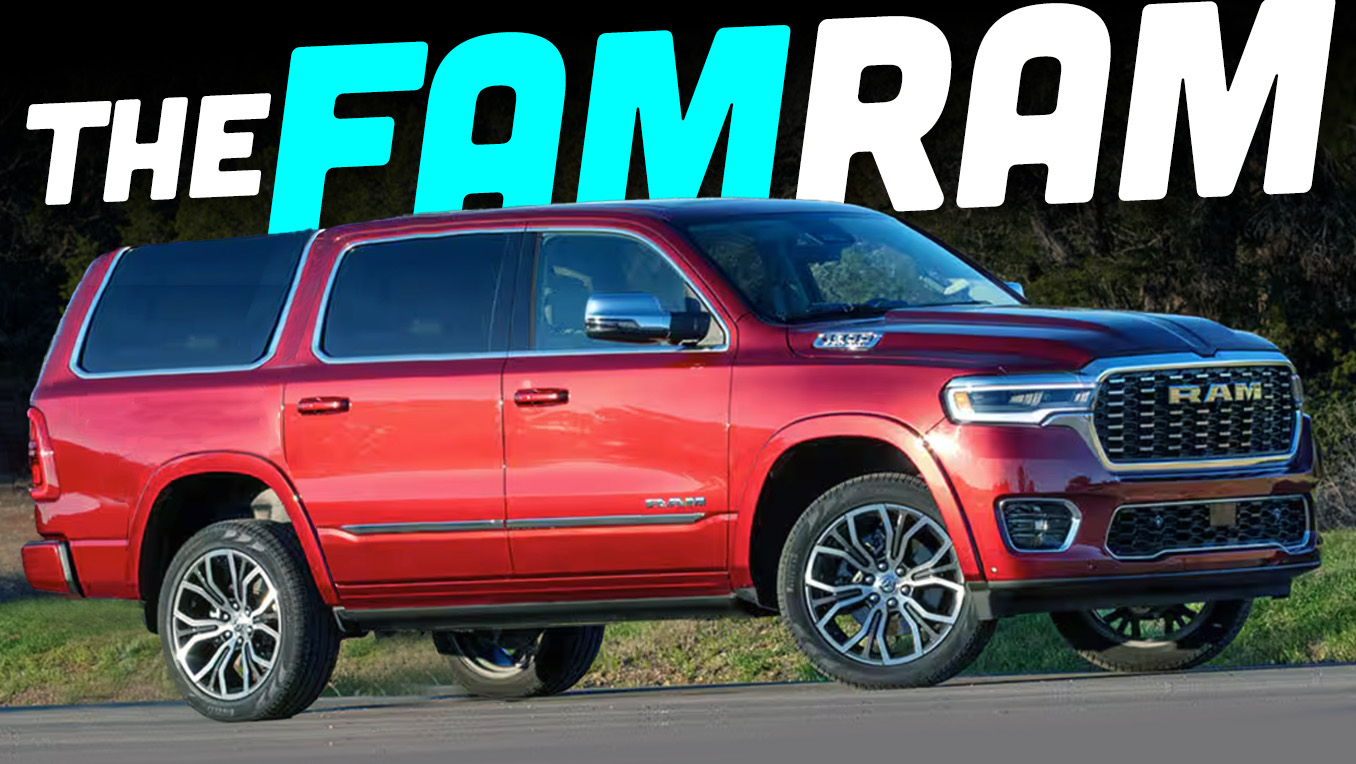
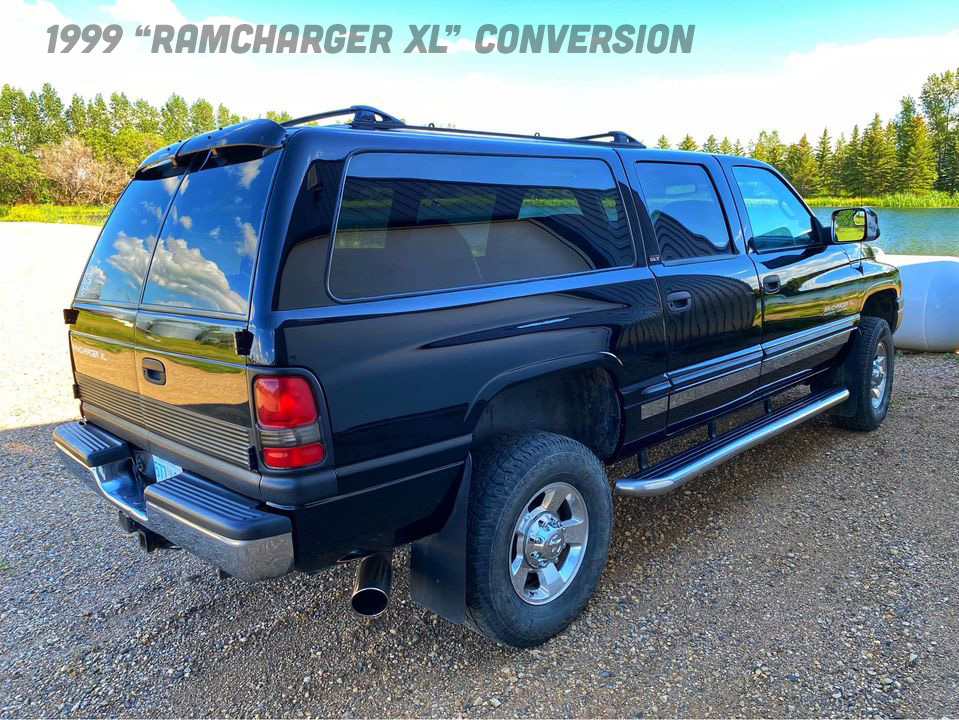







100% agree. I would moan about this when I worked there haha. Instead went with an awkward and too expensive Wagoneer. Still don’t know why we cannot have both.
I’ve complained about this since the new Ram trucks were released.It doesn’t make any sense that they don’t have something. First thing, is merge Ram back with Dodge. Stop making the Wagoneer/Grand Wagoneer or plan to. Then swing it over as this new Dodge/Ram suv. I know they use Power Wagon for off road variants of their 2500 truck but I’d rather see that as the naming convention for this. Power Wagon for Tahoe size, Power Wagon XL for Suburban. I’d like to see a rear hatch that incorporated something similar with the split tailgate of the truck. Have the split tailgate doors that operate just like the truck version with an upper glass door that opens upward. Leave that as an option and have a typical lift gate standard. I would even be fine with them literally using the truck front fascias on these like they did with the 1st gen Durango.
Well Stellantis did make a full size SUV… it’s called the Jeep Wagoneer/Grand Wagoneer.
And if they make a full size SUV for another brand, it should be for DODGE… and it would be called the Ramcharger… or maybe call it the Power Wagon
Is this not a Jeep Wagoneer and Grand Wagoneer? It not being a “Ram” is simply semantics.
*Stellantics
As Ford and GM have found out with their Lincoln and Cadillac pickup truck offerings, the badge matters. A big Jeep doesn’t attract the same buyer as a big Ram SUV.
GM wouldn’t make a Suburban, Yukon XL, and Escalade if they didn’t attract different buyers
It also doesn’t help that the Wagoneer is a massive pile of shit.
I lived in Tucson, Arizona in the late 90s, close enough to the border to be able to see the odd Mexico-only two-door Ramcharger SUV with Sonora or Chihuahua plates once in a while. Man, that was one damn handsome truck. Why they never made it for the US, I have no idea, especially why they never made a four-door version for the US.
That Ford Midhorn concept looks to be based on the 6th gen (dentside) pickup, not the 5th gen (bumpside).
“Its absurd that you Still Can’t Buy A True Full-Sized RAM Family SUV”
Sure, sure, Dodge has been looking over at GMs plethora of truck based SUVs for decades thinking, “Why would we want to get in on those hundreds of thousands of high dollar sales?”
Or we could just say the quiet part out loud and that is that Dodge only gets the trucks and Jeep gets, we’ll, whatever it wants. How hard would it be to tone down a Wagoneer and put a blue collar price on it? Tahoe and Expedition say not that hard.
Ha! Those are far from a blue collar price. Tahoe starts at $60K and the Expedition at $62K!
I hear you, but it’s still not $100k+. Getting an SUV on that platform in the $60k range would certainly be accessible to a lot more buyers. And GM has proven that there are plenty of buyers in that market if theyre able to have what four SUVs in it?
The lede is buried in the last paragraph. The headline should be: how to fix the wagoneer: make it a Dodge.
Great write up and artwork as always!
Did you really make a graphic for “The Fam Ram”? ????
The gaps in RAM’s lineup are insane for the “Truck” brand. No midsize, no compact Maverick competitor (in the US), no real hybrid options (yet) and/or beefy inverter options (F150 Pro-Power), no 6.4 option in the half-tons, no real body-on-frame rwd/truck-based van (basically a Chevy Express ProMaster)… Ram has the potential to be a lot more competitive than they currently are.
I’ve always thought this as well! you’d think they would have at least an offering in each of those categories but hey why bother actually doing things like that when you can charge way too much for a V8 wrangler or make EVs literally no one wants?
Exactly. I was just thinking about the ome year only 2011 Ram Dakota. Why spin Ram off if they’re only going to have two products? Three or four if you count the heavy duty trucks.
That’s how Stellantis roles, RAM technically has only two product lines, Dodge has three, Chrysler has one, why waste money develop lot product when few product don’t really do trick?
The plan was to sell Chrysler Corp for parts and the trucks were the only profitable part of Dodge. Jeep / Ram had value and Dodge / Chrysler where / are pretty much worthless. Then Fiat took the whole mess.
EDIT. For trucks Ram has the 1500, 2500, 3500, 4500, and 5500
Ram also has the Promaster van (ICE and EV) and used to have the Promaster city.
When you’re in a terrible product planning competition and your competitor is Stellantis.
Ram should go back to being the model name for DODGE’s pickup truck.
And then they should bring in a new Rampage as a Maverick competitor.
And bring back the Dakota as a midsize pickup competitor.
And bring back a short and long wheelbase version of their minivan… as the Caravan and Grand Caravan.
And have panel van version of the Caravan as the ‘C/V’ version.
The DODGE brand needs to go back to being a mass-market brand that competes with Chevy and Ford.
I think the Dodge name has been poisoned by all the bad products they’ve put out since the ’80s. There’s the odd gem here and there but overall the quality of the vehicles has been bad. The Chrysler 300/Dodge Challenger and Chargers were obviously hits, but they ended up being the credit criminal car of choice after they decided Mitsubishi wasn’t cool enough.
Dodge still has it’s fans but I think those fandoms were built off the back of cars that haven’t been made in decades outside of ‘PUT MORE HP IN IT!’ No one thinks the Hellcats/et al are NICE cars, it’s just the easiest way to get 11ty million HP.
Hear me out… rather than go to battle for a category where GM and Ford run the show and Toyota picks at the scraps, how about they re-introduce a Ram B-Series Van and go claim some largely uncontested space.
It could be a Heavy Duty platform built to accommodate everything from the Ram Charger inline hybrid to the Cummins and come in multiple heights, lengths, up fitter, cargo and passenger configurations along with available factory 4WD.